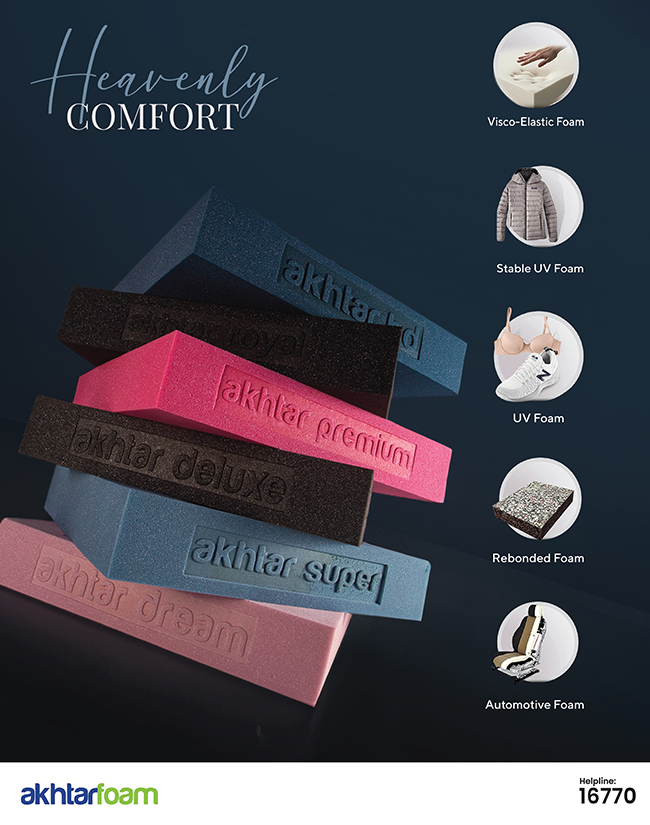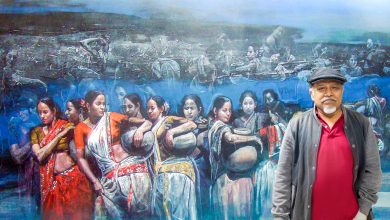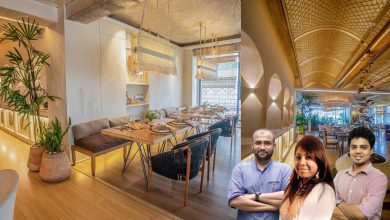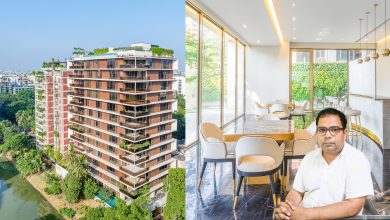A Green Workspace- Karupannya Factory
Bangladesh never saw a flourishing rugs business in foreign markets until Karupannya set its foot in Europe to make a story of success. Under the brand name Satjranji, Karupannya has set a benchmark in the export industries, creating employment opportunities for women living in the underprivileged areas. Its factory in Rangpur is designed in a soul pleasing working environment, encapsulated by nature and greenery.
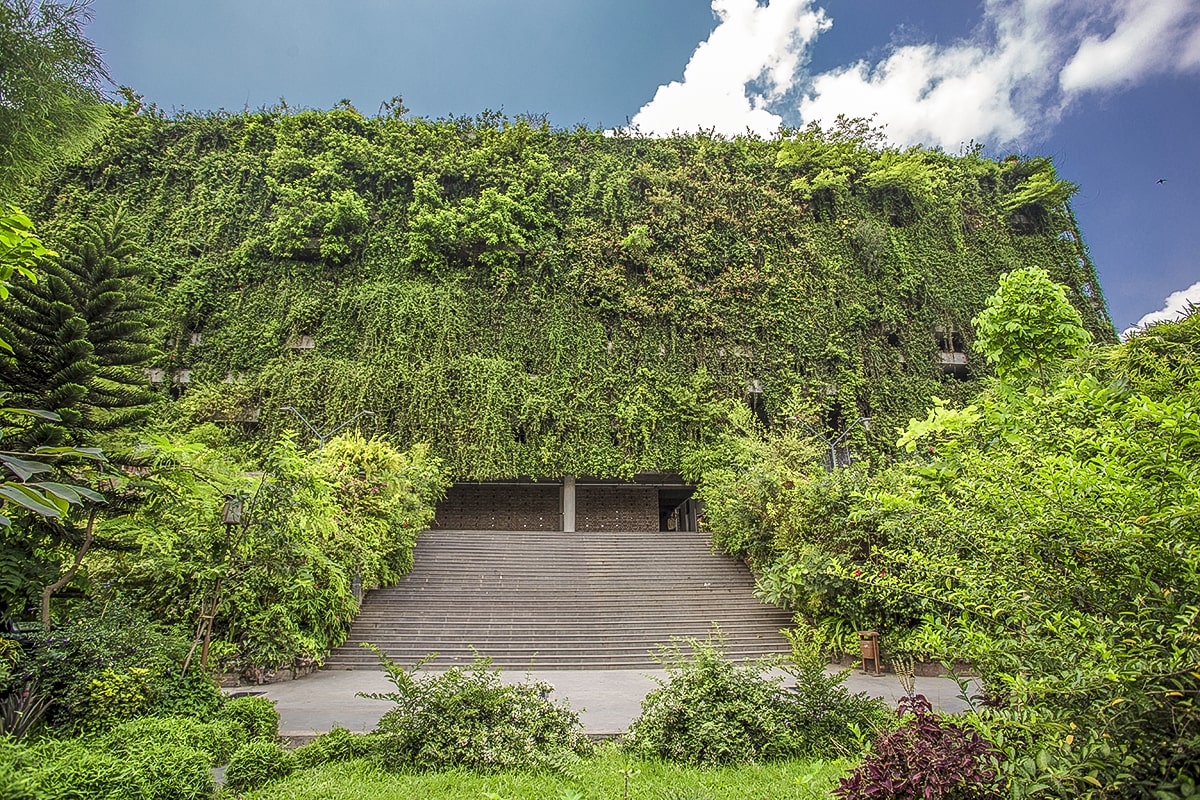
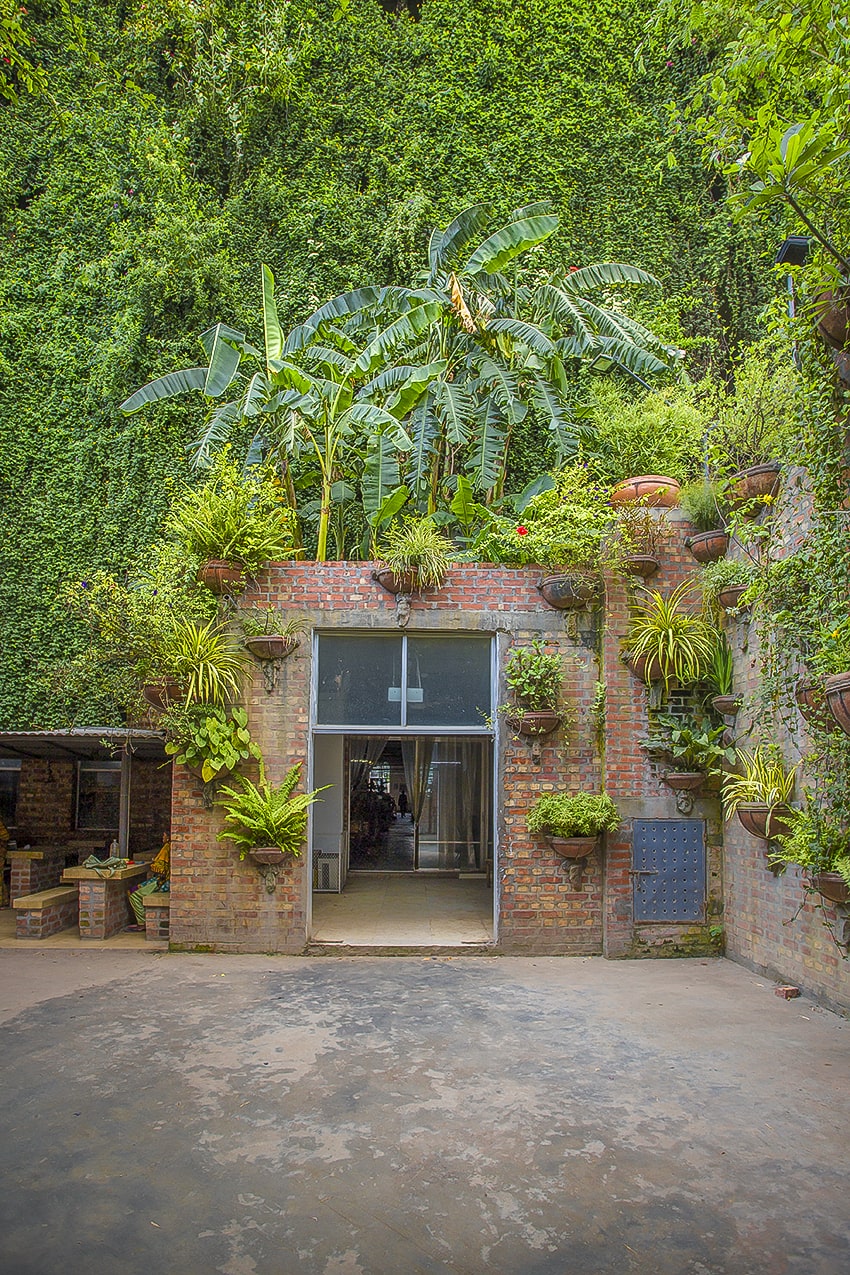
Karupannya started its journey in 1991 in Rangpur with just 15 craftsmen, and now it has 5,000 workers and employees producing carpets, the majority of which are exported to the European Union, the US and Asia. At present, the factory produces about 15 types of products — all floor coverings made out of waste sourced from the garment and textile sector, jute, waste yarn, rope and short fibre. It also produces some home textiles and products for a number of local furniture makers as per their designs. The environment friendly factory was designed by Architect Bayejid M. Khondker and his team, Nakshabid Architects.
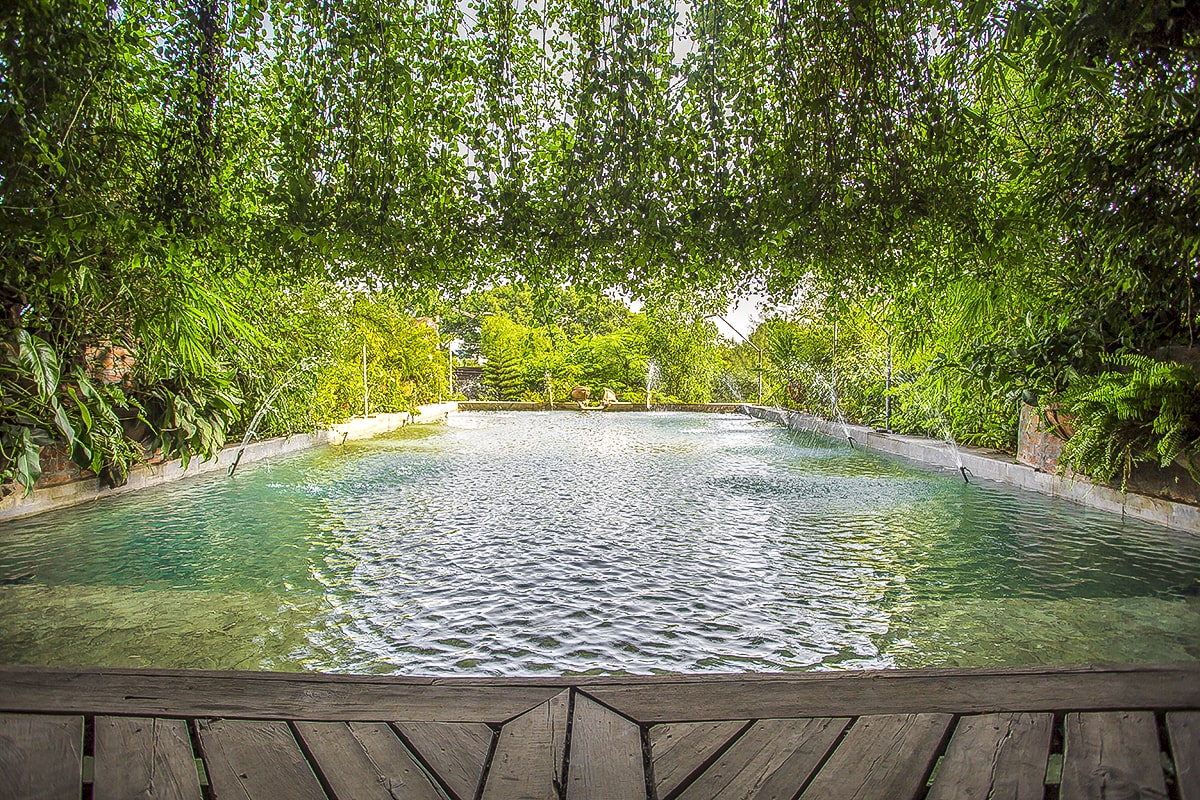
The factory is a green approach to architecture, where Ar. Bayejid aimed to build an environmentally and structurally safe factory that ensures the foreign buyers like IKEA that Bangladesh industry is committed to addressing environmental concerns. Besides the working area, the factory comprises of medical center, grocery shop for employees, food canteen, prayer room, ATM Booth etc.
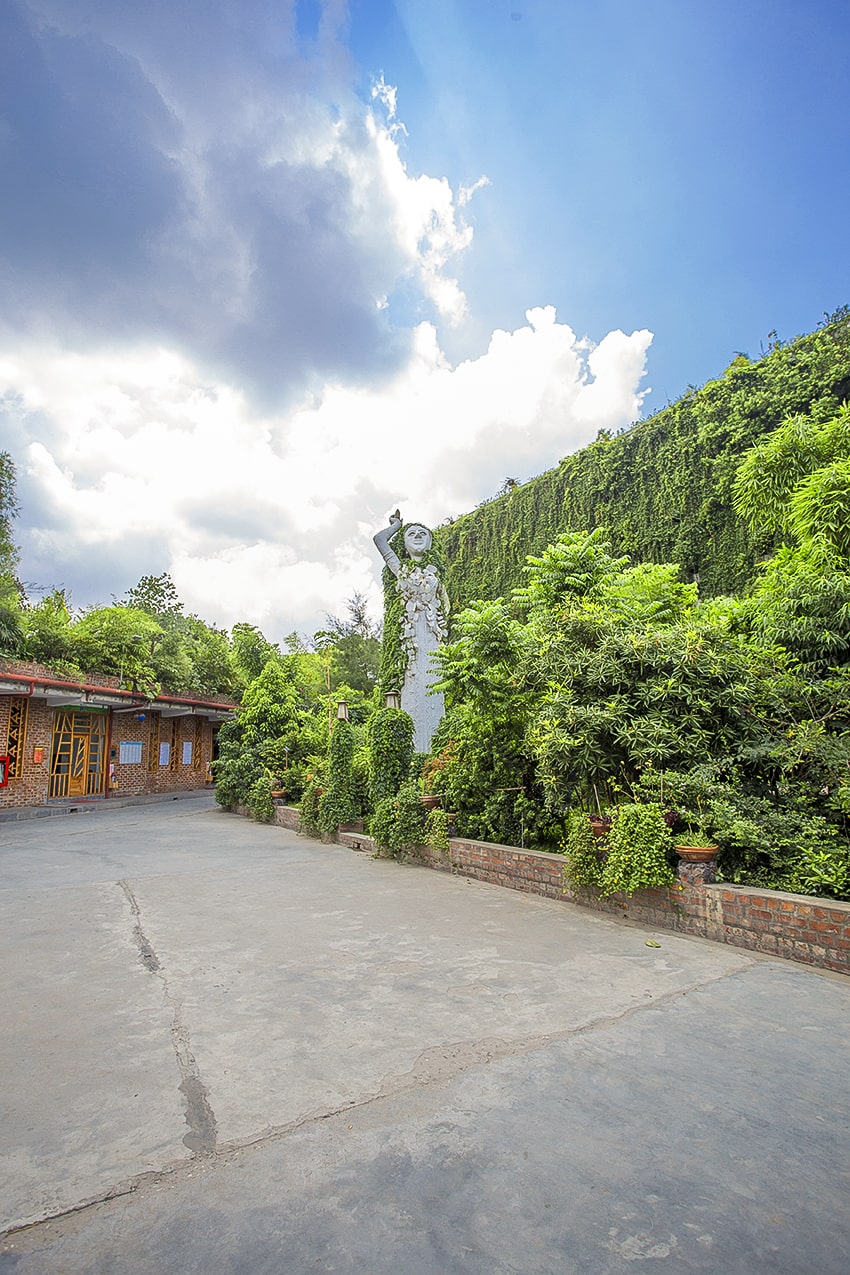
Since one of the important concerns of the brand was about environmental and social development, the factory was bound to be made with ultimate efficiency in terms of the use of electricity and fuel. To keep the climate of the lovely working force naturally favourable, the idea of Bengali village homes is implemented in the architecture of the factory. Four huge water reservoirs are made in front of the factory.
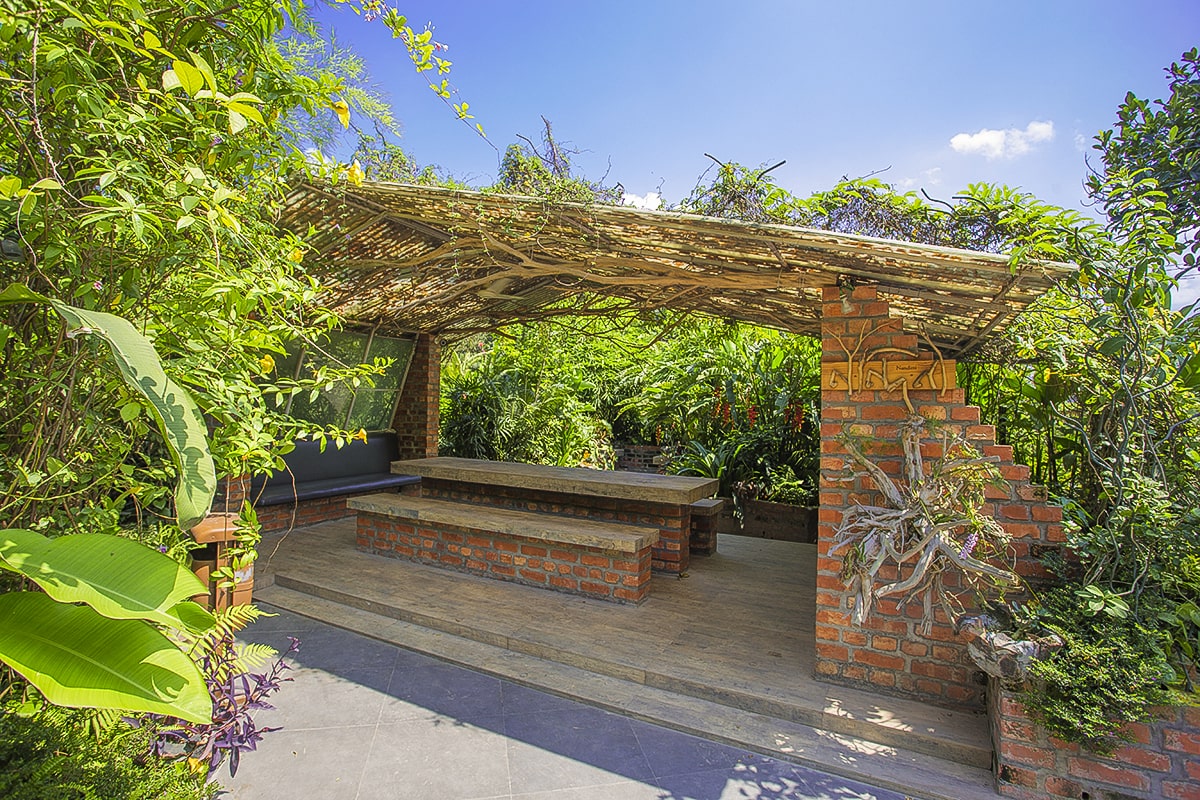
These water reservoirs can contain huge amount of water which can be used for fire security and at the same time help the northward wind fly through the green plants and finally enter into the building, creating a cool atmosphere inside even without air conditioner. On the other hand, water from the reservoir is used for dying process through oxidization. Moreover, the reservoir is used for rainwater harvesting. Many exit paths are made so that during any fire or accident, thousands of workers can exit together.
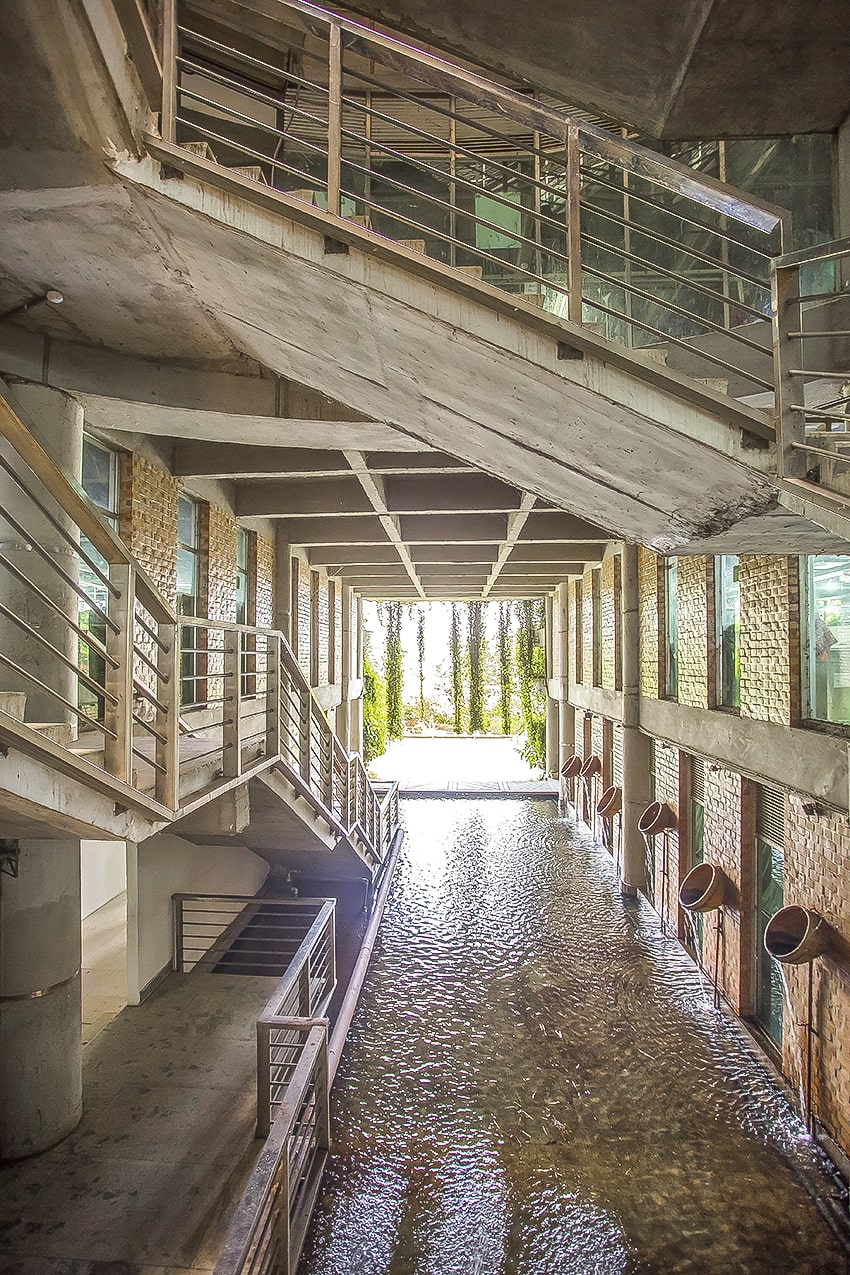
The design ensures a beautiful and humanistic work environment. In the rooftop of the factory, there is the Nandini Park, designed artistically for the workers to sit and have their lunch. Nandini park is surrounded with flower plants and greenery, exuding a peaceful aura. Workers can also gossip and spend time in the garden, the lily pond and the podium in front of the factory. Being the symbol of women in Satranji Craft, a large sculpture named Bonolota stands in pride in front of the factory. Entertainment programs are arranged for the worker’s recreation on the stage named Rokeya Mancha behind Bonolota. In special occasions, the wide stairs in front side of the factory are used as audience gallery during the programs. The working area is kept spacious with enough scope for air and sunlight to enter.
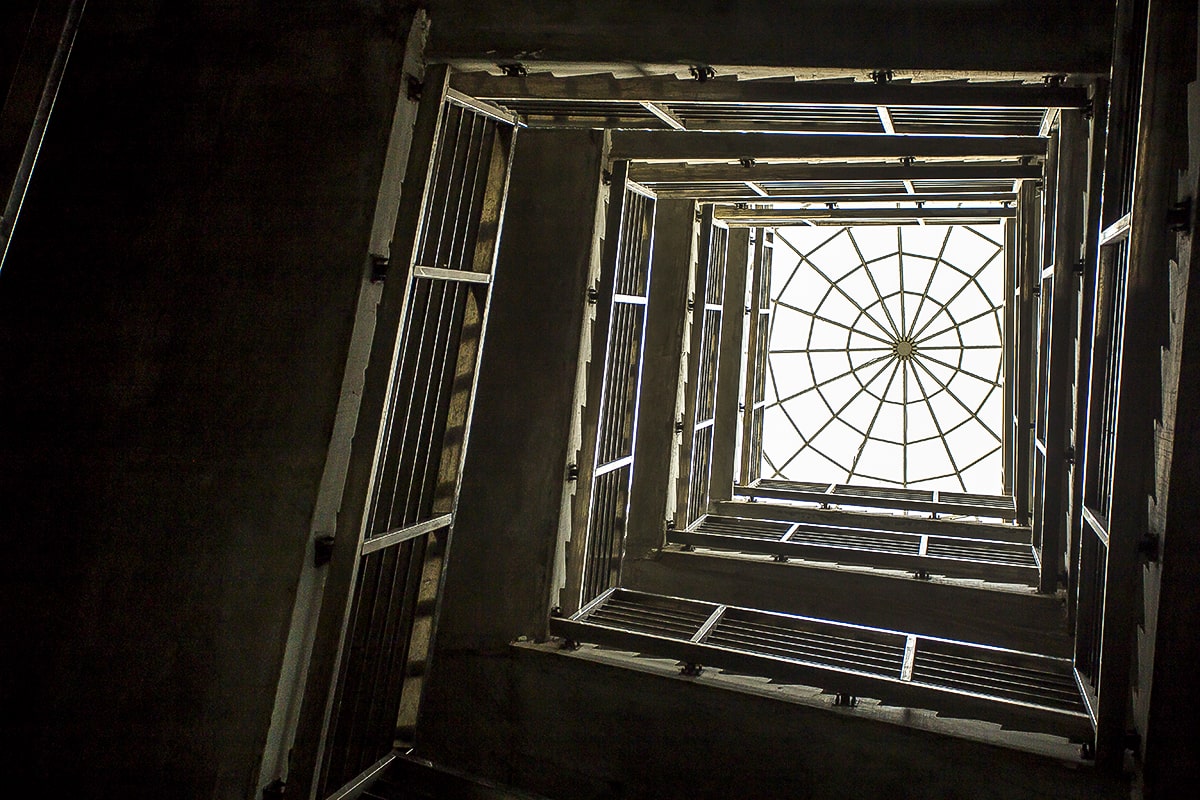
The design ensures a beautiful and humanistic work environment
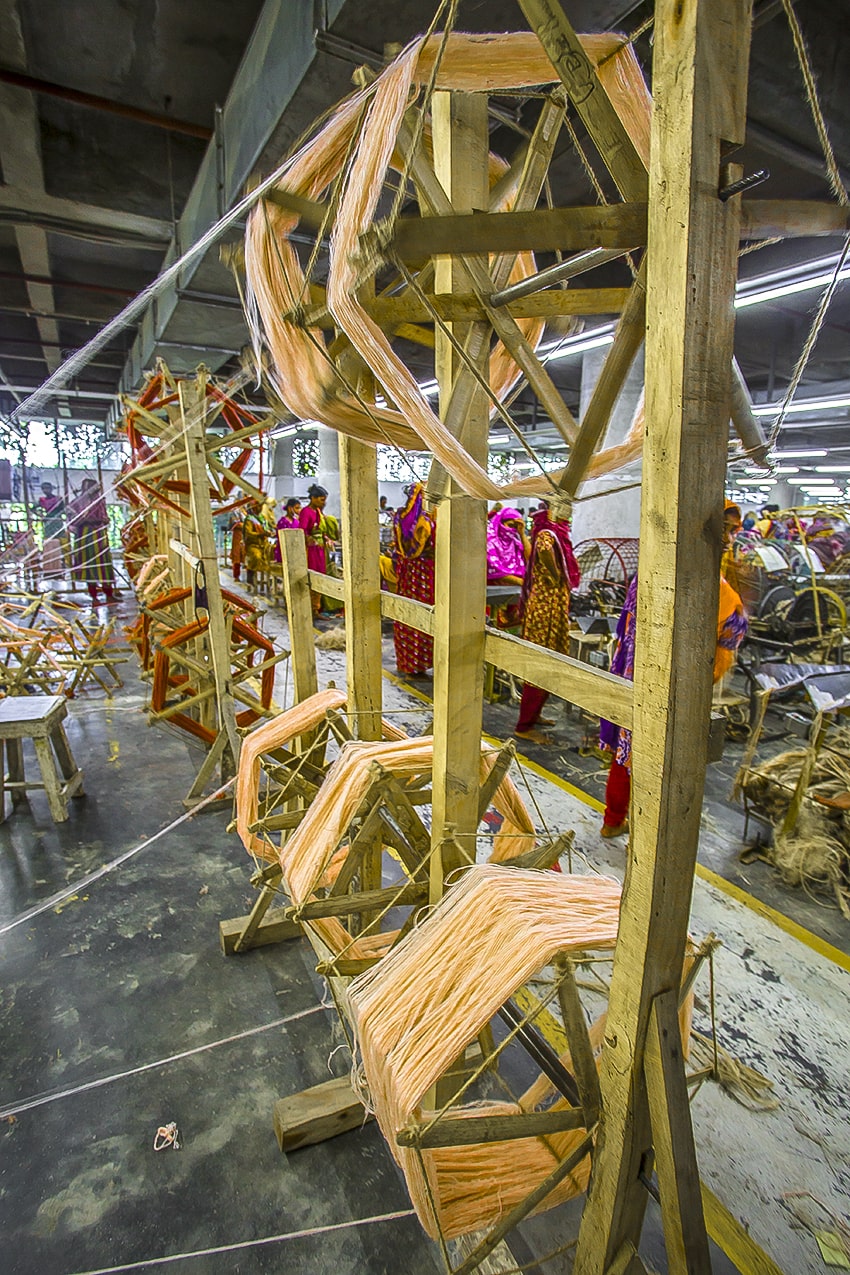
There are about thousands of small and big sculptures in the whole factory. Little women sculptures in shape of small clay dolls can be seen passing through the huge stairs and walls. These not only add aesthetic beauty, but also carries the symbol of the women’s wonderful works. Satranji is the ancient heritage of Rangpur, and Karupannya factory succeeds to uphold its legacy, carrying a powerful message.
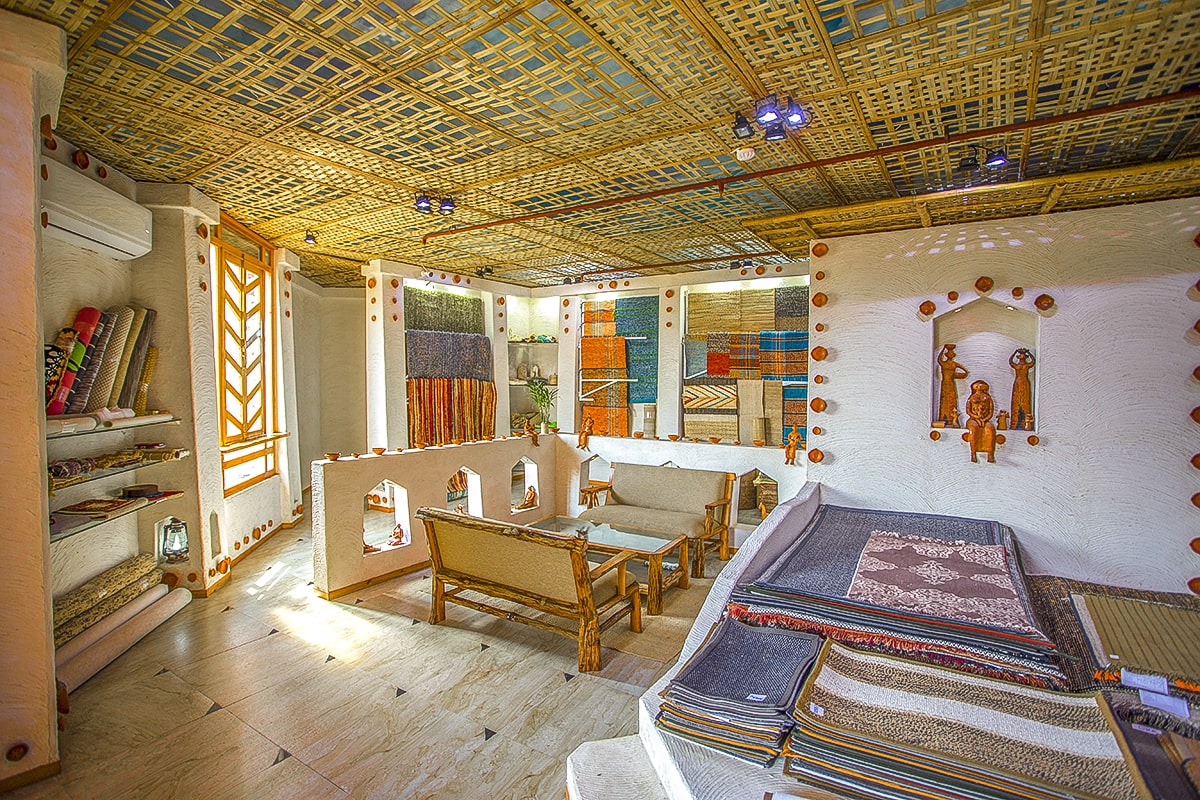
The sculptures in Karupannya not only add aesthetic beauty, but also carry the symbol of women’s wonderful works
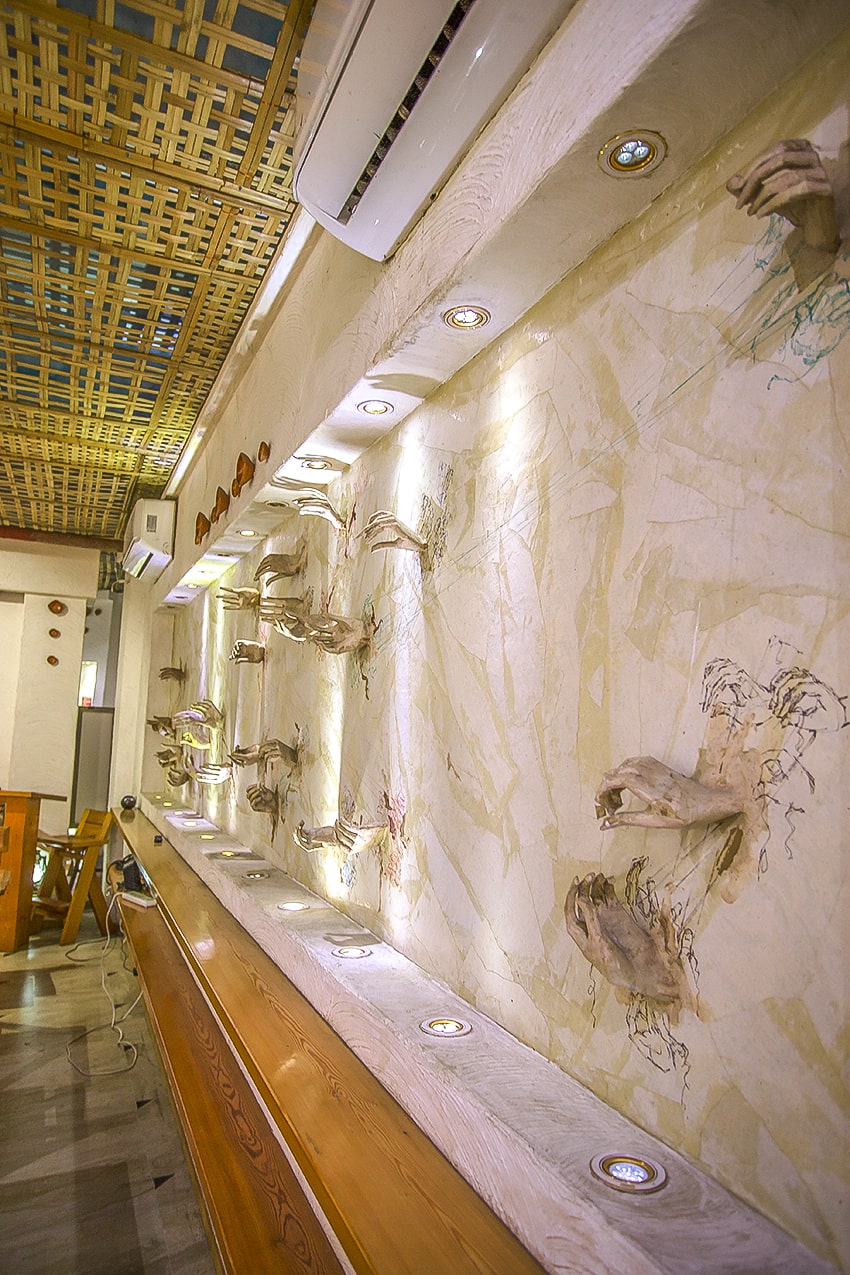
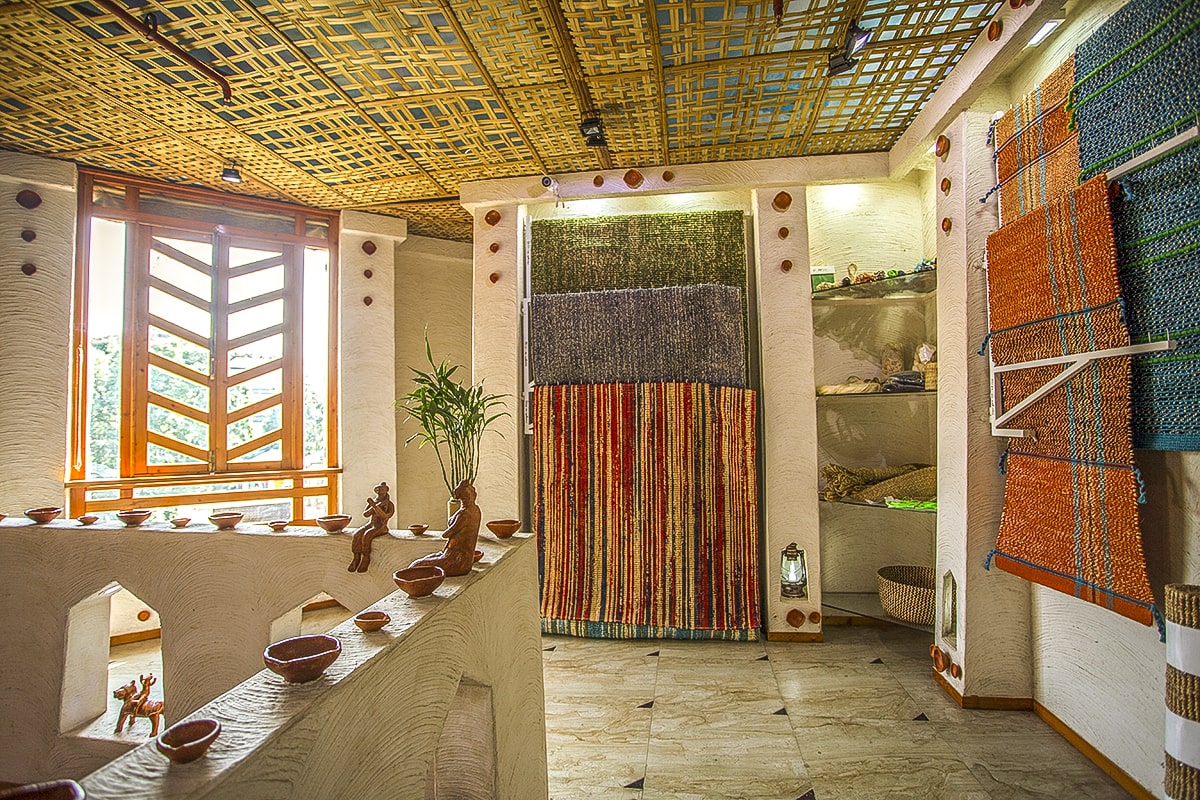
About Architect:
Ar. Bayejid M. Khondker creates places and spaces that engage in a dialog with the history, beliefs and needs of a particular place and time. As a profound architect of Bangladesh, he works on many scales, thoughtfully designing public places and spaces, to build on the unique local character and the best qualities of the forms inherent in that geographic region. At present, he is the Principal Architect of his firm, Nakshabid. Some of his notable projects include Dargahtala Jame Masjid, Bijoy Rakeen City, Military Museum, ABC Heritage in Uttara, S.M Tower in Uttara, Kamal Residence in Baridhara, Panthaneer in Dhanmondi etc.

